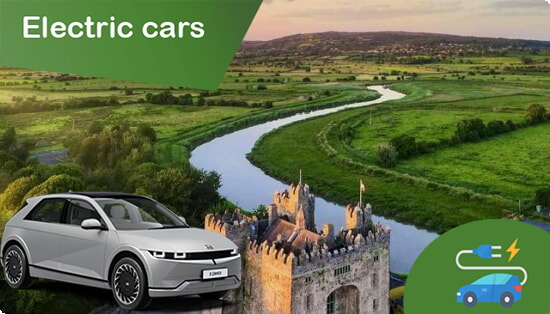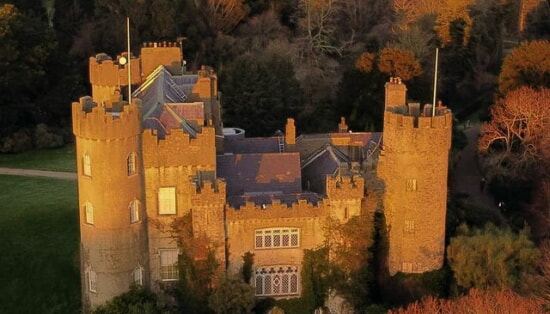 20%
Discount
20%
Discount

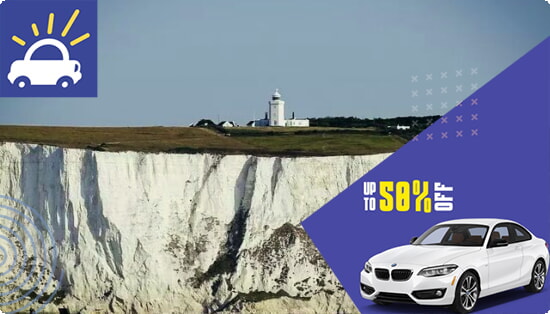
In Ireland, you'll encounter several toll roads where the fees range from 2 to 3 euros. These tolls can be paid in cash, or if you're without cash, you have the option to pay online, by phone, or at Payzone sign-marked stores. The payment is due by 8 pm the following day. Some car rental companies may handle toll payments for you, but it's best to confirm this service in advance.
As per the official website of the Ministry of Transport in Ireland, speed limits are typically 80 km/h on local roads and 100 km/h on national highways. Remember to carry cash for tolls on major highways. Use dipped beam headlights only when visibility is low, and ensure that all passengers, both in the front and back seats, have their seat belts fastened.
For traffic violations, penalties include financial fines and demerit points recorded in a special database for foreign drivers. These points may later be transferred to an Irish driver's license if the foreign driver obtains one. If you receive a fine, you have 28 days to pay it. Failure to pay within this period results in a 50% increase in the fine and an additional 28 days to pay. Unpaid fines after this period will lead to court proceedings, where fines can increase tenfold if found guilty.
In rural Ireland, you may find single-lane roads serving two-way traffic. Pullouts are provided for vehicles to yield to each other. It's illegal to use a cell phone while driving, and this includes hands-free devices. Violations result in hefty fines.
Parking in central Dublin is metered, with rates ranging from 0.80 to 3.50 EUR per hour, depending on the zone's color. In the outskirts, parking discs are commonly used. The fine for illegal parking is 80 euros, and it's advisable to pay promptly to avoid additional charges, especially when renting a car. In other Irish cities, parking is generally more accessible, though it's recommended to choose hotels with private parking.
When renting a car, note that gas stations in Ireland offer diesel and 95-octane unleaded gasoline. While 24-hour stations are available on the outskirts of major cities, they are sparse in remote areas. Carrying extra fuel in cans is permitted, so plan accordingly for long journeys.
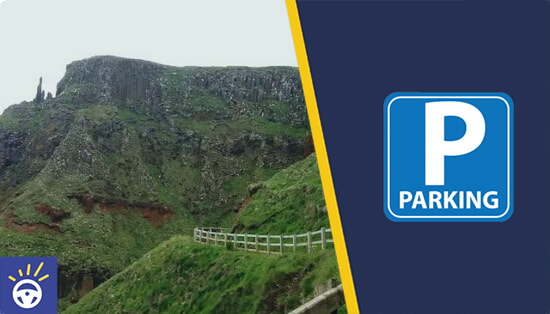
Ireland, with its verdant landscapes and frequent rain showers, offers travelers a wealth of historical sites to explore. If you're renting a car, make sure to visit Glendalough in County Wicklow. This enchanting valley, with its three lakes and a stunning glacial fault, is home to a sixth-century medieval monastery settlement that is sure to captivate any visitor. For a spectacular view, take the scenic yet somewhat lengthy trail to the upper lake's source.
Another must-visit destination is the port city of Galway, located on the Republic's west coast. The city's heart is Eyre Square, a popular 18th-century gathering spot for both locals and tourists, encircled by quaint shops and traditional pubs where Irish folk music is frequently played. The Latin Quarter's stone-lined, meandering streets are rich with history, housing medieval fortifications, cafes, shops, and art galleries.
In County Cork, the picturesque town of Cobh awaits with its stunning cathedral, charming fishing harbor, and the historic last dock of the Titanic. Capture a vibrant photo with the cathedral and West View street in the background, but you'll need to position yourself by a tall stone fence to get the perfect shot.
The city of Belfast deserves your attention for its grand public buildings, a legacy of the Victorian industry's profits. The city center boasts elegant Victorian architecture and the bustling Donegall Square shopping area. Belfast is also a hub of cultural activity, with a thriving scene in theater, visual arts, and music.
While in a rented car, don't miss the opportunity to visit the city of Limerick. Known for its dynamic cultural scene, it is home to the renowned Hunt Museum, which boasts the most extensive collection of art and antiquities outside of Dublin in the Republic.
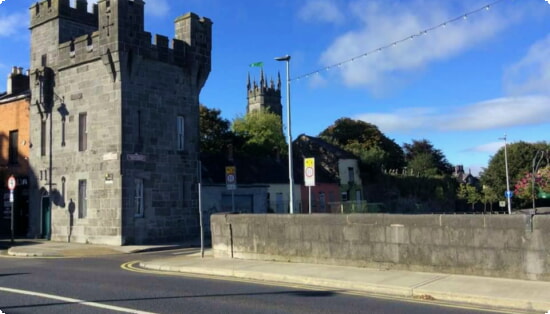
Be sure to explore Cork, a vibrant university city situated along the River Lee. The river leads into Cork's natural harbor, a gateway to the Celtic Sea. The city is also known for its exhibitions that delve into the history of the area. Cork's iconic landmark is the 18th-century spire of St. Anne's Church.
The capital city, Dublin, is a treasure trove of attractions, including the diverse collections of the National Gallery and the National Museum. To the south of the city lie the serene Wicklow Mountains, offering a stunning natural contrast to the bustling city life.
In Ireland, there is an abundance of car insurance options to consider when renting a vehicle. It's crucial to carefully review the Insurance Section of the rental contract to ensure you understand the coverage. Keep in mind that the local laws of the country where you're renting the car will govern your rental agreement. Typically, car rentals in Ireland include a basic Collision Damage Waiver (CDW), which covers damages to the vehicle up to a certain amount, usually between 1000-3000 euros. This amount is held on your credit card as a security deposit until the car is returned without damage. However, the CDW often excludes coverage for:
The security features of your rental car will be detailed in the voucher you receive upon booking confirmation. Renowned services such as Avis, Hertz, Europcar, Sixt, and others have a strong presence in Ireland and many other countries. For a deposit-free car rental, consider using a local company like Dooley. These companies often allow you to book a car without a deposit if you opt for full insurance coverage.
Choosing comprehensive insurance is advisable in Ireland to safeguard yourself and your passengers from unforeseen incidents on the road. Opting for additional insurance services may increase the rental cost by a few tens of euros.
Be aware that one-way rentals in Ireland incur extra fees, which differ from one company to another. Additionally, if you decide to use your credit card's insurance for the rental, be prepared to pay an administrative fee of approximately €30 imposed by Irish rental companies.
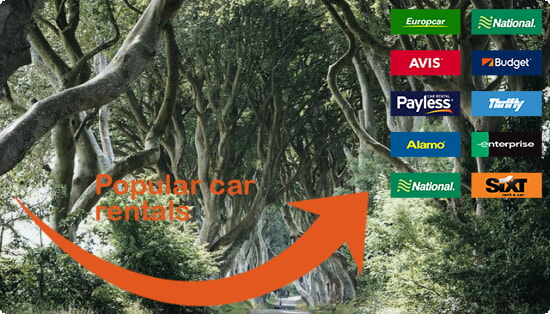
Electric vehicles are enjoying peak popularity in Ireland, largely due to the Irish commitment to environmental conservation. The appeal of hybrids is also on the rise, thanks to their fuel efficiency and lower emissions.
The country has innovatively integrated charging stations into lampposts, following the enactment of a special bill by the Irish authorities. Charging electric vehicles at these stations is complimentary. Additionally, electric vehicles benefit from free parking in cities and are exempt from toll charges on roads.
Several rental agencies, including Hertz and Avis, provide a selection of electric cars such as the Renault Twizy, Renault ZOE, and Nissan Leaf. For those wishing to rent an electric car without a credit card, local companies like Dooley may accommodate this request upon prior arrangement.
